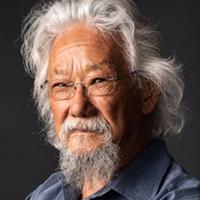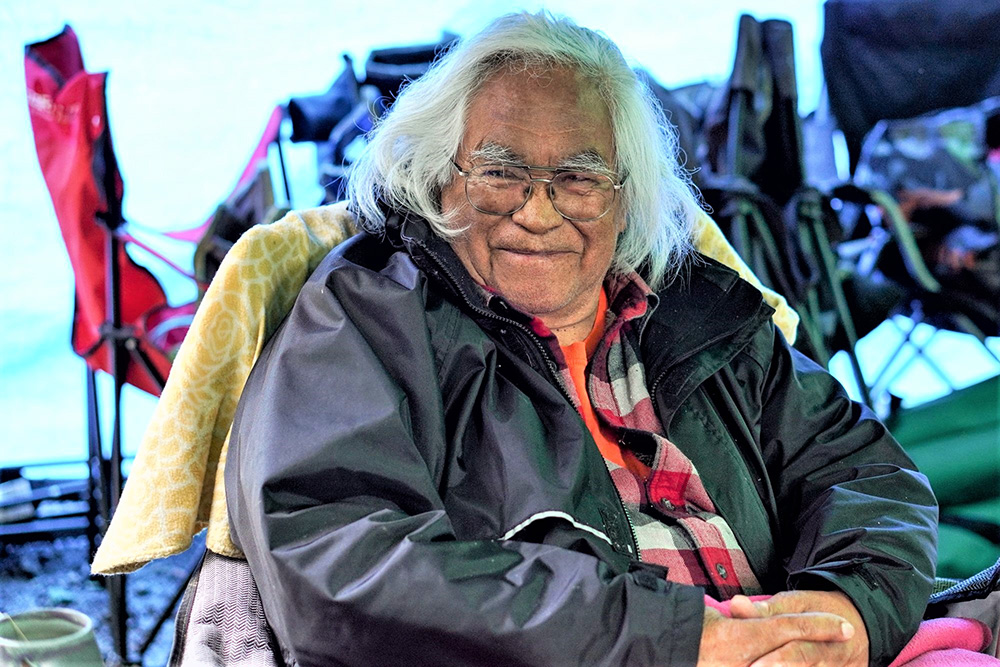Where the hell is Premier John Horgan? He called an unnecessary election to gain a majority. Now that he has it, why isn’t he showing he deserves it?
People of all ages, but especially youths, are putting their bodies on the line at Fairy Creek, being manhandled and arrested to convince government that we must stop the continuing devastation of the ancient forests that could teach us how to get off humanity’s suicidal path of ecological destruction.
Every bit of wild nature left is priceless and should be left alone. My heart is with the protesters as they try, peacefully, to get our so-called leaders to open their minds and hearts to a global crisis that is only worsening under our current practices.
Worldwide, our species has become so numerous, so technologically powerful and so economically demanding, that we are destroying the foundation of our well-being and our lives — the air, water, soil, photosynthesis and the diverse, productive web of living beings who are all genetically related to us.
Truly sustainable jobs, economies and communities are built on the productivity and generosity of nature.
Using DNA comparisons, scientists have determined that our species evolved on the grasslands of Africa some 150,000 years ago. We were a furless ape whose intelligence compensated for our lack of size, strength, speed and sensory acuity.
After 40 or 50 millennia, we began to move from the savannahs into new areas where we were an invasive species. With simple tools like spears and stone axes, we were an effective and deadly predator, even driving a few prey into extinction. We learned through observation, mistakes, failures and successes, which became the basis of traditional knowledge that sustained communities for thousands of years. And this cycle has been repeated over and over as we moved across the planet.
What has enabled human beings to persist and flourish is the understanding that we are a small strand in a complex web of relationships with all other species of animals and plants and air, water, soil and sunlight. Through ceremony, we celebrated those relationships in songs, dances and prayers and, in our own self-interest, promised to act properly to ensure nature’s well-being because we can’t control her. The only thing we can control is human behaviour (although COVID-19 and the climate crisis have shown how difficult that is).
But now we have moved out of that web of relationships to elevate ourselves into a position of dominance. We see ourselves as the centre of the action. We think all of nature is for us. All our systems — religious, legal, economic, political — reflect that self-importance. We environmentalists are, despite ourselves, enmeshed within these systems that elevate human interest above all else and that is why we call for a paradigm shift.
We’ve had pitched battles over B.C. forests for the same reasons decades ago. Remember when more than 900 were arrested over logging in Clayoquot Sound in the 1990s? Thirty years later, are we still left to use the same tactics of protest, only with a greater sense of urgency and a more violent response? Has there been no change in how we evaluate forests based on economics, where nature remains an externality?
Then-premier Mike Harcourt, like Horgan today, didn’t listen. He claims those protests and arrests played no part in his decision to protect the Clayoquot forests, that it was the Indigenous people who moved him to act. Today, virtually any public meeting in B.C. begins with a land acknowledgement, a recognition of who bears responsibility for having cared for the land for thousands of years. That relationship with and responsibility for the land is why Pacheedaht Elder Bill Jones joins in the protest. But this crisis concerns all of us, it is not just an Indigenous matter.
In our current colonial system of governance, elected representatives make decisions that determine the future of trees, fish, water, air, children and future generations. But none of those most profoundly impacted vote; only adult humans do, with all their vested interests in the status quo.
Around the world, Indigenous people have been under assault because their perspective and values (called ecocentrism in contrast with the anthropocentrism of colonial systems) are seen as an impediment to unrestrained resource extraction. Yet they are the only group with a track record of living in balance with their surroundings for thousands of years. What government or corporation can make such a claim for even a few decades?
At a time when environmentalists realize genuine sustainability means a paradigm shift, Indigenous people have the best shot at showing us how to achieve it. But after more than a century of policies of occupation, appropriation and cultural genocide, they suffer numerous consequences from residential schools, systemic racism and poverty and outright murder. I believe they will be far better stewards than settlers have been and, once finances for their basic needs and infrastructure are provided and barriers to diverse economic development are removed, they will generously teach us the right path.
As a settler, I am grateful to and thank Indigenous people for hanging on to their languages, culture and values because that’s what is needed in this time of global eco-crisis. And Indigenous people generously tell me, “we are all in the same canoe, and must learn to paddle together.”
To keep their values alive, Indigenous people must regain sovereignty over their territory and collect appropriate rent for land already co-opted by government and occupied by settlers.
I pledge my support to that cause. Horgan, who has pledged to implement the United Nations Declaration on the Rights of Indigenous Peoples, should too. Meanwhile, his government should stop destroying future options with actions like old-growth logging, recognizing the role ancient trees should have when Indigenous peoples regain their rights.
They, not the government nor the forest industry, must provide the perspective that will determine the fate of these forests and thus the future of the biosphere.
As a scientist, I can and would be happy to contribute relevant information and perspective, but I will only do so at Fairy Creek if the Indigenous nations of this territory give me permission to come onto their land and speak. ![]()
Read more: Indigenous, Rights + Justice, Environment
















Tyee Commenting Guidelines
Comments that violate guidelines risk being deleted, and violations may result in a temporary or permanent user ban. Maintain the spirit of good conversation to stay in the discussion.
*Please note The Tyee is not a forum for spreading misinformation about COVID-19, denying its existence or minimizing its risk to public health.
Do:
Do not: